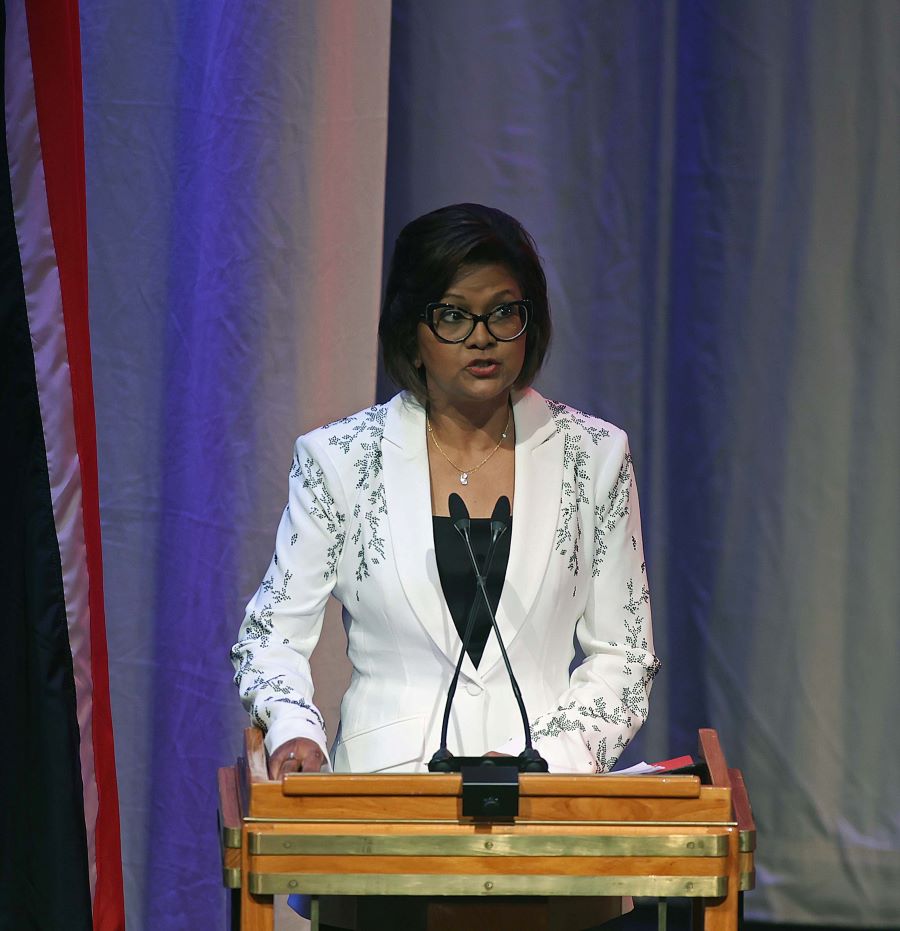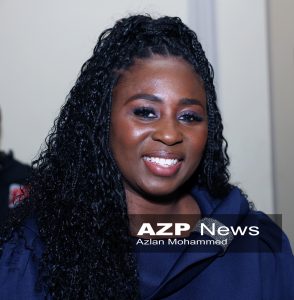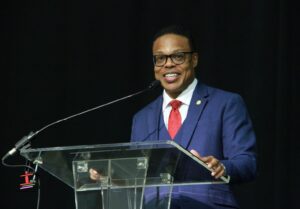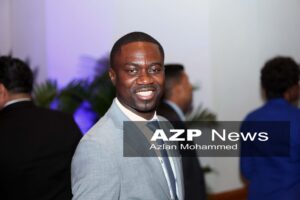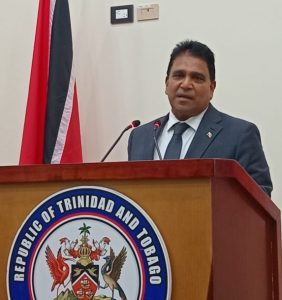BELOW is the tribute by President Christine Kangaloo at the State funeral of Basdeo Panday on Tuesday January 9, 2024:
When Basdeo Panday passed from this life on the 1st of January 2024, Trinidad and Tobago lost more than just its fifth prime minister. We lost one of the largest and most colourful figures in the modern history of the Caribbean. We lost a man who blazed a trail like few others before him ever had, and like few others ever will again. We lost a feisty fighter, who faced every battle head-on: winning some and losing some along the way; at times hurting his opponents; at times, hurting himself. We lost a man who yielded no ground during his 90 years. We lost a man who lived his life to the full and who, in the course of doing so, set the national landscape on fire.
From Princes Town to Port of Spain; from Couva North to the Caribbean; from the Bahamas in the North to Guyana in the South – Basdeo Panday was a man who fascinated a region with his charm and enthralled a nation with his wit. Mind you – that wit could turn from delightfully charming to devastatingly caustic at the drop of a hat; something that I observed first-hand when I sat across the floor from him in Parliament during the period 2007 to 2010. During that period – in what turned out to be the sunset years of his political career – he would, on the occasions when he was not waxing lyrical in the course of a contribution, often sit with his head buried in a book, never looking up, almost daring those on the opposite side to interfere with his peace. Woe betide the unsuspecting soul who dared to do so. We all learned early on not to trouble the Lion when he was at rest. And, even though the Lion has now entered into another state of rest, many of us who learned that lesson were so traumatised that, to today, we remain a little apprehensive about saying anything even remotely critical of him, lest we awaken his ire once more!
Basdeo Panday certainly had enough people who were critical of him during his lifetime. He had his fair share of detractors. That is hardly surprising. As a meteor blazes its trail across the sky, it burns everything that is in its path, because that is the nature of a meteor’s existence. And, since Basdeo Panday was one the brightest meteors in the country’s galaxy, it would not be surprising if, in his wake, he burnt bridges at times. But Basdeo Panday also had at his side, his friends with whom he built indestructible bridges and long and lasting relationships; and his family, whom he loved more than life itself. Doubtless, it was they who gave him strength when the days grew dark, as sometimes they did, even in his colourfully brilliant life.
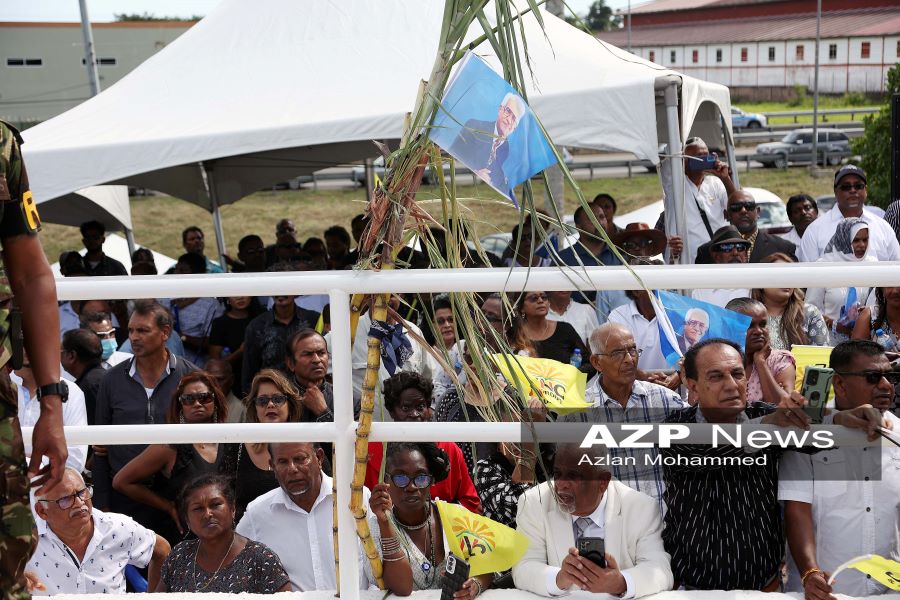
I remember when Basdeo Panday first impressed himself unto my consciousness. And I remember what impressed me then, the most about him.
The year was 1984. My brother Wendell has just been called to the Bar, and my father had called together a few of his friends to a celebration at our home in St Joseph Village, to mark the occasion.
Basdeo Panday was among those friends. What most impressed me about him that evening, was not his legendary charm or his delightful wit. What struck me the most about him, was that he was a man completely and utterly in love with life. He and his beloved Oma danced the evening away with complete abandon, moving to the music in a way that even then, in my youth, it was difficult for me and my friends to match. He was to show that same energy, and some of those very dance moves, almost 40 years later when he mounted the stage at Brian Lara’s All-Inclusive Carnival Party recently, to the utter delight of an adoring audience. His energy was as infectious then as it had been at Wendell’s party, and it dawned on me that evening that here was someone who understood and who practised the art of the moment – of giving oneself completely to the present moment, unburdened by a past – which can never be changed, and unafraid of a future – which can never be held.
What also struck me about him that evening at Wendell’s party was the love that he had for his wife, Oma – a love that endured until his dying day. In later years, I would look on, in quiet admiration, at how that love was shared among his family, and especially with his daughters – Niala, Mickela, Nicola and Vastala. Trinidad and Tobago has been lucky enough to witness regular demonstrations of his relationship with Mickela, with whom in later years he would often attend official events. Every time I saw a picture of him and Mickela, I would think to myself what an example he was to fathers everywhere. How I wish that our country’s fathers would model and emulate their closeness. What the nation saw between him and Mickela in public, is what every member of his family felt, away from the public glare. We need to remember that Basdeo Panday was not only a public figure, but that he had an immensely meaningful private life. His family has lost their North Star. We need to remember that they are shattered by this loss, far more than we are.
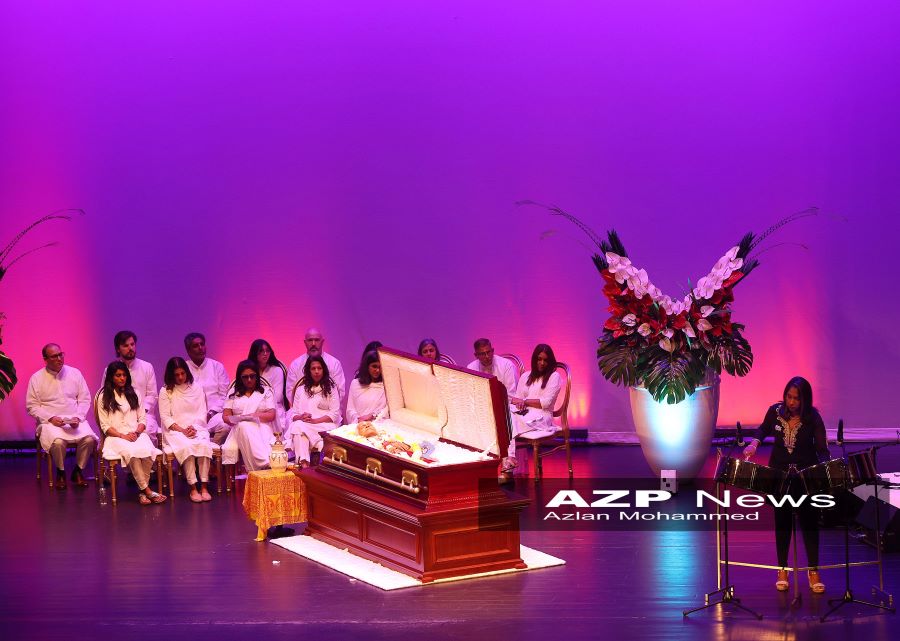
Although our paths must have crossed innumerable times after that evening of my brother Wendell’s celebration in 1984, my next enduring impression of Basdeo Panday is of him sitting in a courtroom, as a barrister, instructed by my father, waiting for the Judge to enter to commence a trial. Also present in the courtroom, waiting, were the illustrious Vernon Jamadar and Shaffique Shah, the latter of whom would go on to become a High Court judge. Both of them were of a different political persuasion from my father, as of course, was Basdeo Panday. You can imagine how they ganged up and gave political picong to my poor father that day, with Basdeo Panday leading the charge. But what you probably cannot imagine – and what at times it seems almost impossible to conceive of, in today’s political environment of so much bitterness and of so much acrimony – is the humour, and the affection, and the mutual respect that suffused the banter among these men. It was strong banter, mind you. But when the judge entered, all four men put their banter aside and set about discharging their respective duties to the court and to their clients respectfully, and without a hint of rancour among them. After the matter ended, they returned to their banter, with renewed vigour, Basdeo Panday being, unsurprisingly, the most vocal among them.
What that experience taught me has remained with me throughout my subsequent life in the public space. We can believe in vastly different things, yet be civil to each other; we can hold wildly divergent views on what is good and right for our country, yet treat each other with respect and compassion; we can be fundamentally be opposed to each other ideologically, yet remain courteous and gracious to one another.
Whether in or out of the courtroom, Basdeo Panday practised law the way he lived. We might not have the right to tell historians what to say about Basdeo Panday. But I believe that we have a duty to tell them what they ought to know about him. Our historians should know that Basdeo Panday was someone who lived what he believed, especially as a lawyer. He conducted his practice in a way that ensured that those who could least afford to have legal representation could have it through him. My brother Keith tells me that when he, Keith, was in the practice of litigation, many moons ago, there would be clients who would request and insist that the law firm that Keith was in at the time, instruct Basdeo Panday as their barrister/counsel of choice. Keith remembers frequently being shocked when he would get Basdeo Panday’s requisitions for settling a writ and statement of claim – as they were then called. His fees were always significantly lower than other counsel. Basdeo Panday was someone who believed that persons of lesser means should never be deprived of legal representation. But he didn’t just believe it – he walked the talk.

After that day in court with my father and the three goodly gentleman who were opposing him, my next most enduring memory of Basdeo Panday was at my inauguration in March of last year. With the charm for which he had by then become legendary, he locked his eyes with mine, and disarmed me completely with the words: “Congratulations, that was an excellent speech”. Having got me where he wanted me, he then said: “I’m afraid to tell you, though, that you will get nothing done”, paused briefly, and concluded, still smiling, “without constitutional reform”. If there was one thing about Basdeo Panday, it is that he was dogged.
Where constitutional reform is concerned, he was like a boa constrictor with its prey in its grip. Stubborn to a fault on that issue, he never let go of his vision for changed arrangements in the way we govern ourselves. But that was the man, and a critical ingredient of his success – he never gave up in a fight.
I wouldn’t dream of trying to eulogise Basdeo Panday. There are those far better equipped than I am to do so. Theirs is the task of capturing, in words, not just the facts and the dates that made up his life, but the essential truth of who he was – his joys and his sorrows; the watershed moments and events that both formed and tested him; the crucibles of secret pains and private triumphs in which his personality and his beliefs were shaped and forged. Few have done so as well as those who have spoken before me this morning. Few will do so as well as Mickela, whom I have had the privilege of preceding this morning. And, insofar as remembering and eulogising him goes, I have no doubt that this is only the beginning, and that Basdeo Panday will continue to be remembered and deeply loved for years to come.
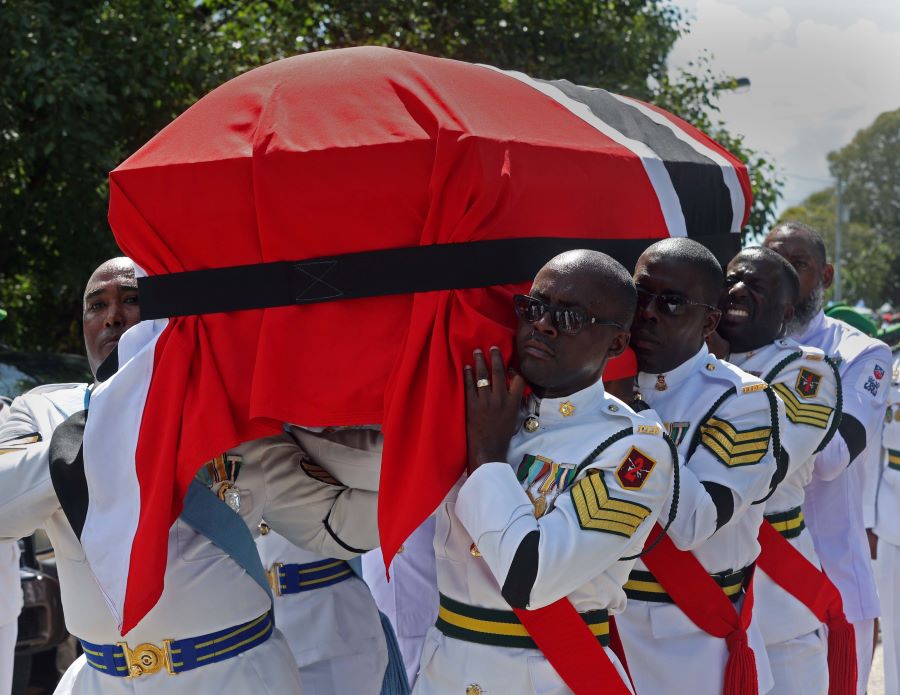
My task is a far simpler one than eulogizing him. It is to give thanks, on behalf of a grateful nation, for Basdeo Panday’s service to Trinidad and Tobago and by extension, to the Caribbean and to the international community. And, where Basdeo Panday is concerned, there is much to be thankful for.
On behalf of a grateful nation, I thank Basdeo Panday for the example of grit and determination that he gave us – may his example inspire us all to rise beyond our circumstances and to defeat any obstacle in the way of our path to a better tomorrow. I thank Basdeo Panday for the example of joie de vivre that he epitomized; for the example that his life is, to our young men and women, of how to have a good time, to let go completely to the joy of the moment, not in dark alleyways or with dangerous company, but in the safety and in the bosom of our families. I thank Basdeo Panday for his example to fathers in this country – of how to love and to nurture daughters into self-actualized women, who are not afraid to challenge the status-quo and to claim their due and rightful place, in what was once called the world of men. I thank Basdeo Panday for his being part of an era in which we could be our better selves, and for reminding us that, if we choose, we can disagree without being disagreeable to one another. I thank Basdeo Panday for never giving up the political fight and for becoming the first person of the Hindu faith, and the first person of Indian descent to be Prime Minister of Trinidad and Tobago – and in so doing, breaking down barriers and clearing the way for others to aspire to even greater heights than he himself achieved. But most of all, I thank Basdeo Panday for being an example of a real human being – for being a complex man, often prudent, sometimes rash – but for never pretending to be what he was not. I thank him for having had the courage to be his authentic self.
On behalf of a grateful nation, I thank Basdeo Panday for his life, for his love, and for his service.
May his family find peace and consolation in a nation’s love; and may his soul find salvation and liberation. Om Sadgati.


AZP News is an independent news organisation that is not affiliated with any big business and depends solely on advertising to pay our bills. Therefore, we are asking for the generosity of our readers to help us with small donations of any amount, but we will be happy with US$1, US$5 or US$10. Click Here to Donate
![]()


